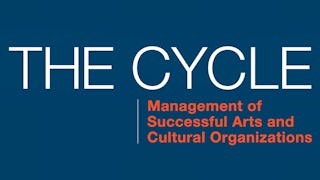Filter by
SubjectRequired
LanguageRequired
The language used throughout the course, in both instruction and assessments.
Learning ProductRequired
LevelRequired
DurationRequired
SkillsRequired
SubtitlesRequired
EducatorRequired
Explore the Culture Course Catalog

University of Amsterdam
Skills you'll gain: Sociology, Social Studies, Social Sciences, Socioeconomics, Culture, Political Sciences, Economics, Qualitative Research, Research Methodologies

The University of North Carolina at Chapel Hill
Skills you'll gain: Music History, Music, Culture, World History, Social Studies, Liberal Arts, Performing Arts, Public History, Art History, Storytelling, Cultural Diversity, Writing

University of Virginia
Skills you'll gain: European History, World History, International Relations, Social Sciences, Political Sciences, Economics, Economic Development, Culture, Governance

University of Maryland, College Park
Skills you'll gain: Fundraising, Business Management, Organizational Strategy, Event Management, Governance, Stakeholder Engagement, Business Planning, Marketing, Strategic Marketing, Business Strategies, Growth Strategies, Customer Engagement

Sapienza University of Rome
Skills you'll gain: Ancient History, 3D Modeling, Scientific Methods, Anthropology, Investigation, Data Modeling, Cultural Diversity, Art History, Research, Timelines, Data Management, Data Collection

University of Copenhagen
Skills you'll gain: Electronic Media, Culture, Social Studies, Media Production, Social Sciences, Media and Communications, Cultural Diversity, Video Production, European History, World History, International Relations, Storytelling
 Status: Free Trial
Status: Free TrialSkills you'll gain: Talent Acquisition, Training and Development, Compensation and Benefits, Training Programs, Recruitment, Employee Training, Full Cycle Recruitment, Job Analysis, Employee Performance Management, Compensation Management, Performance Appraisal, Job Evaluation, Developing Training Materials, Compensation Strategy, Human Resource Policies, Organizational Structure, Occupational Safety And Health, Business Continuity Planning, Risk Management, Business Risk Management
 Status: Free Trial
Status: Free TrialSkills you'll gain: Agile Software Development, Agile Methodology, Kanban Principles, Agile Project Management, User Story, Sprint Retrospectives, Sprint Planning, Workflow Management, Performance Metric, Team Oriented, Backlogs, Performance Measurement, Lean Methodologies, Continuous Improvement Process, Prioritization, Estimation

École Polytechnique
Skills you'll gain: Oral Expression, Oral Comprehension, Writing, Vocabulary, Language Learning, Grammar, Culture, Political Sciences, Cultural Diversity, European History, Art History, World History, Science and Research, Social Sciences
 Status: Free Trial
Status: Free TrialSkills you'll gain: DevOps, Agile Methodology, Cloud-Native Computing, CI/CD, Test Driven Development (TDD), Scrum (Software Development), Behavior-Driven Development, Performance Metric, Accountability, Team Oriented, Culture Transformation, Microservices, Cross-Functional Collaboration
 Status: Free Trial
Status: Free TrialThe University of Sydney
Skills you'll gain: Critical Thinking, Creative Problem-Solving, Problem Solving, Editing, Research, Creative Thinking, Public Speaking, Proofreading, Deductive Reasoning, Brainstorming, Information Management, Analytical Skills, Cognitive flexibility, Ethical Standards And Conduct, English Language, Writing, Verbal Communication Skills, Higher Education, Digital Communications, Communication
 Status: Free Trial
Status: Free TrialSkills you'll gain: Git (Version Control System), GitHub, Version Control, Collaborative Software, Web Applications, Open Source Technology, Command-Line Interface, DevOps
Culture learners also search
In summary, here are 10 of our most popular culture courses
- Classical Sociological Theory : University of Amsterdam
- The American South: Its Stories, Music, and Art: The University of North Carolina at Chapel Hill
- The Modern World, Part One: Global History from 1760 to 1910: University of Virginia
- The Cycle: Management of Successful Arts and Cultural Organizations: University of Maryland, College Park
- Recovering the Humankind's Past and Saving the Universal Heritage: Sapienza University of Rome
- Scandinavian Film and Television: University of Copenhagen
- HRCI Human Resource Associate: HRCI
- Introduction to Agile Development and Scrum: IBM
- Comprendre la France, Advanced French Language & Culture : École Polytechnique
- Introduction to DevOps: IBM










